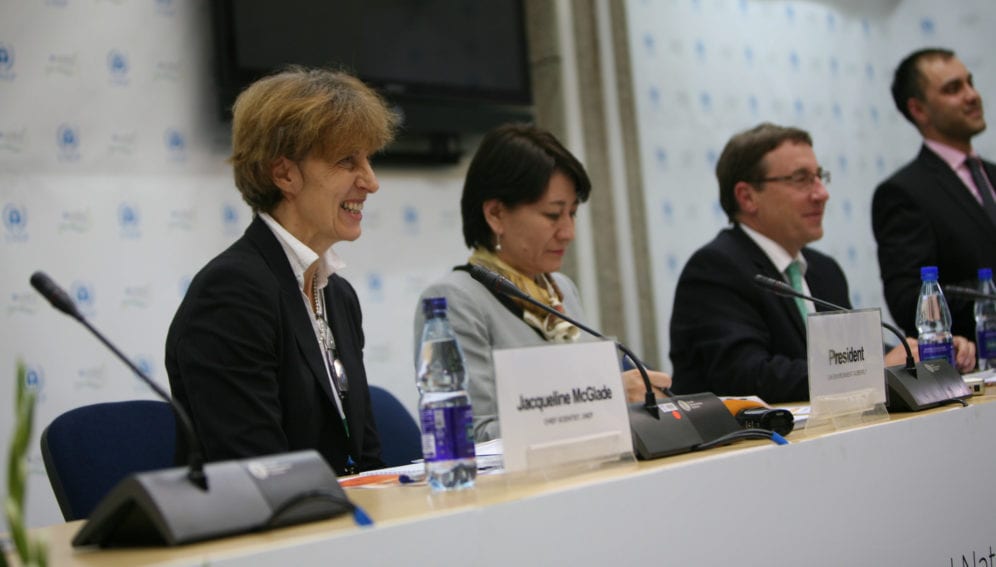By: Mike Ives
Send to a friend
The details you provide on this page will not be used to send unsolicited email, and will not be sold to a 3rd party. See privacy policy.
[AUCKLAND] The chief scientist at the UN Environment Programme (UNEP) says the agency needs to provide better science advice to officials and relief workers during humanitarian crises.
The UN “needs a kind of emergency advisory service”, Jacqueline McGlade said at the inaugural Science Advice to Governments conference held in Auckland, New Zealand last week (28 and 29 August).
“Sometimes it’s the science you need — not someone who’s stuck out at the field station,” McGlade said in an interview with SciDev.Net. The service could provide timely scientific input on both “short burn” emergencies like natural disasters and virus outbreaks, as well as “long burn” situations such as diabetes epidemics, she said.
McGlade has been informally developing a science advisory service at UNEP since she took up her post there earlier this year.
After the Ebola virus surfaced in western Africa, for example, she commissioned a group of scientists to write a report analysing whether the bushmeat trade had contributed to the disease’s spread — as some health experts have suggested recently.
“If we can answer that question really quickly, then obviously we can do something about the spread of the disease,” she said, speaking on the sidelines of the conference, which was attended by senior scientists from nearly 50 countries. The Ebola report is expected this week, she added.
McGlade said she is drafting a proposal that would help make the advisory service — which for the moment is based on her personal network of science contacts — into a formal UNEP body. She said a primary model for her idea is the UK government’s Scientific Advisory Group for Emergencies, which launched in 2009 in response to the H1N1 ‘swine flu’ pandemic.
Scientists at the conference offered mixed reactions to the proposed service.
“We’ll have a look into it,” said Raja Chidambaram, the Indian government’s principal scientific advisor. “But you know, each country has its own [advice service], and they’ll have to be integrated into whatever the UN can add.”
Carlos A. Nobre, national secretary of Brazil’s Ministry of Science, Technology and Innovation, told SciDev.Net that the proposed service could be useful if applied to short-term environmental or health emergencies, though not to more complex ones like climate change.
And Romain Murenzi, executive director of TWAS (The World Academy of Sciences), said that though the proposed UNEP service could be “very helpful” in the world’s least-developed countries, it would not reduce the need for building scientific capacity there in the long term.
“Today there’s one crisis, Ebola, and tomorrow there’s going to be another,” he said. “Are they going to jump into every crisis?”














